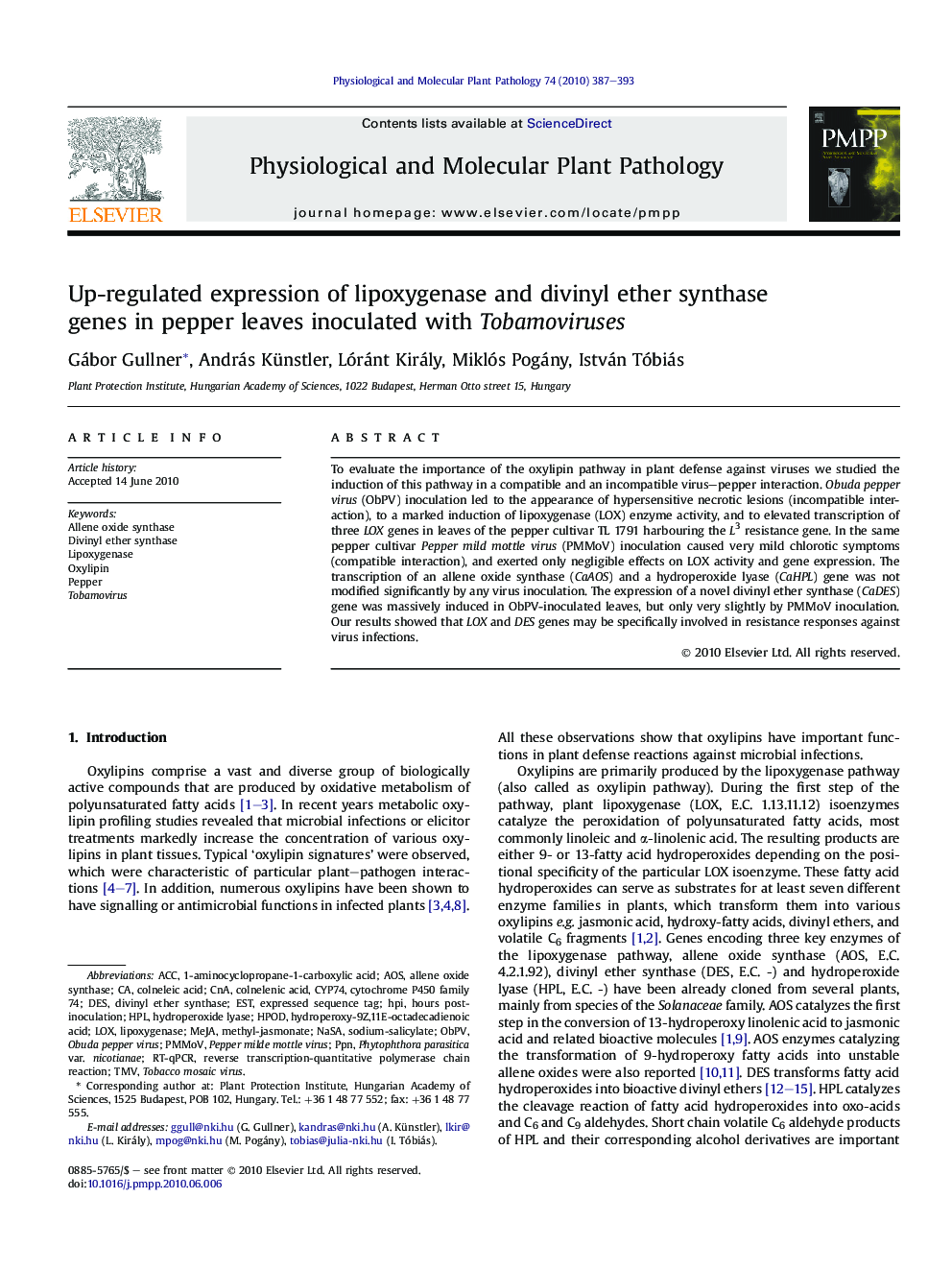| Article ID | Journal | Published Year | Pages | File Type |
|---|---|---|---|---|
| 2836505 | Physiological and Molecular Plant Pathology | 2010 | 7 Pages |
To evaluate the importance of the oxylipin pathway in plant defense against viruses we studied the induction of this pathway in a compatible and an incompatible virus–pepper interaction. Obuda pepper virus (ObPV) inoculation led to the appearance of hypersensitive necrotic lesions (incompatible interaction), to a marked induction of lipoxygenase (LOX) enzyme activity, and to elevated transcription of three LOX genes in leaves of the pepper cultivar TL 1791 harbouring the L3 resistance gene. In the same pepper cultivar Pepper mild mottle virus (PMMoV) inoculation caused very mild chlorotic symptoms (compatible interaction), and exerted only negligible effects on LOX activity and gene expression. The transcription of an allene oxide synthase (CaAOS) and a hydroperoxide lyase (CaHPL) gene was not modified significantly by any virus inoculation. The expression of a novel divinyl ether synthase (CaDES) gene was massively induced in ObPV-inoculated leaves, but only very slightly by PMMoV inoculation. Our results showed that LOX and DES genes may be specifically involved in resistance responses against virus infections.
